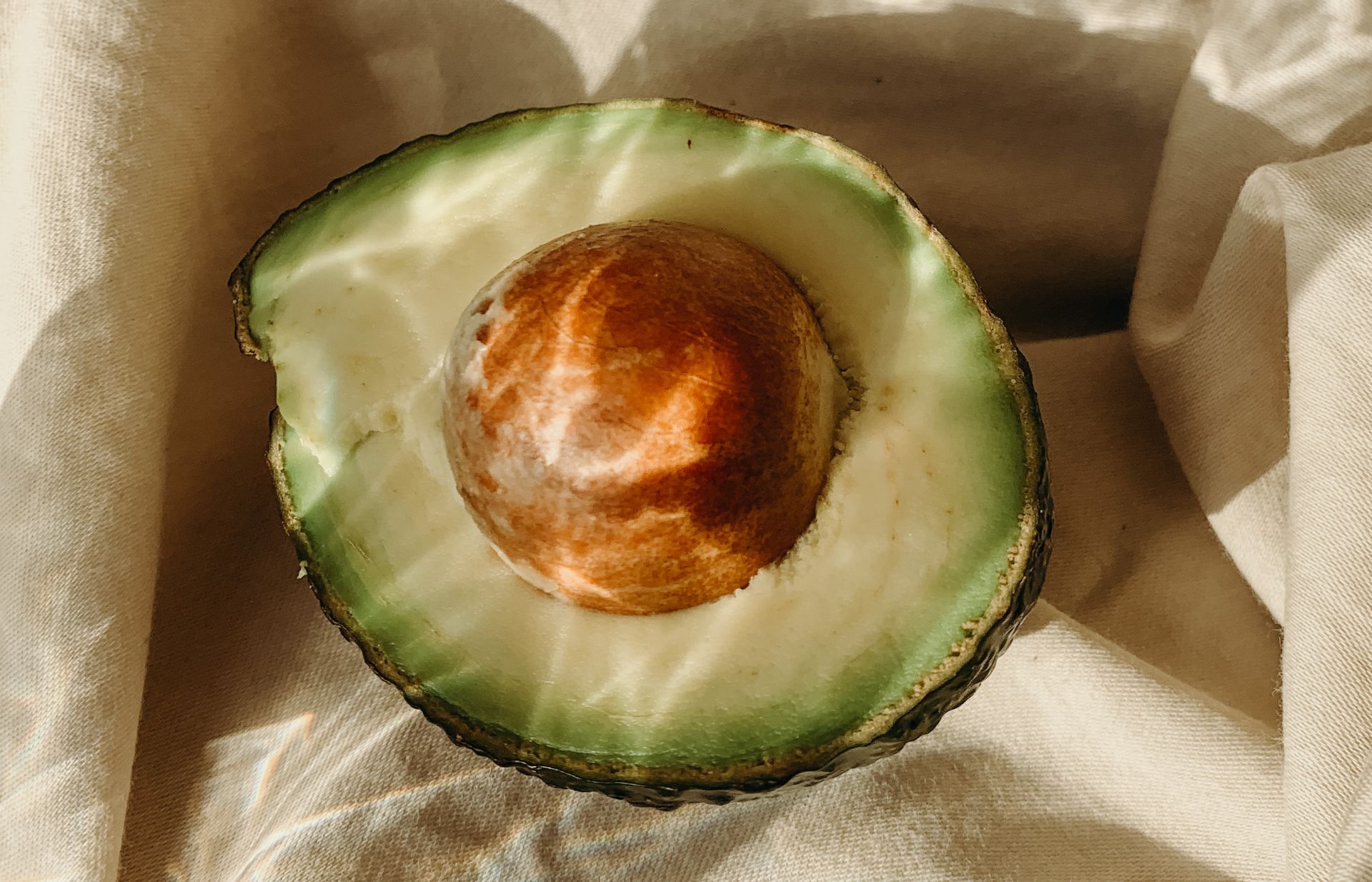
Saturated fat vs unsaturated fat: All you need to know about fats
Interesting fact: eating fats decrease your body fat. Sounds incredible, doesn’t it? And yet it is true because fats are very important to our body. They are the most underrated macronutrient and perform many vital functions.
 Fats are very important for our bodies
Fats are very important for our bodies
But which fats do you consume best? Because you’ve probably heard of saturated and unsaturated fats. What is the difference between these two types? And what about the influence of fats on our cholesterol? Discover it here.
What are fats exactly?
Fat: it has a negative connotation and is often associated with an unhealthy lifestyle. That is because they have been discouraged by the food industry for a long time. After all, they are said to be unhealthy. Low-fat food was offered as an alternative, but that trend seems to be finally coming to an end.
So we are on the right track, although there is still a lot of misinformation about fats. That is why fat is still the most underestimated macronutrient. Consuming the right fats can ensure a leaner body, a better working brain, and good skin. Also, fat can even lower cholesterol levels. So it is generally beneficial to our health. Did you know that our brain consists of more than 60% fat? Also, 25% of all cholesterol is found in our brains.
An important side note is that not all fats are automatically healthy. For example, saturated fat in a fast-food chain hamburger is nowhere near the same as the saturated fat in coconut oil. Quality always comes first!
The second point of attention is that fats are certainly not the holy grail. Therefore, a diet that only consists of fat is not the solution. Food is very personal and that is also the case concerning fats. Some feel better with lower fat consumption, while others just need more fats. A balanced diet is always the norm!
Types of fats
Fat comes in different forms. You’ve probably already heard about saturated and unsaturated fats. The latter category can also be divided into mono-saturated fats and multi-saturated fats, including omega-3 fatty acids.
Saturated fats
Saturated fats are not prone to oxidative damage that occurs with high-temperature cooking. Saturated fats have a particularly bad reputation, but that is completely unjustified. Saturated fats owe this bad reputation to a study back in 1958. Researcher Ancel Keys launched a study in 7 countries that mapped the relationship between dietary habits and mortality due to cardiovascular disease.
According to Keys, saturated fats played a major role in increased mortality, but that was later criticized and debunked. After all, Keys didn’t take into account all kinds of other factors that can contribute to heart disease. He went ‘cherry picking’ to substantiate his own position with figures. Anything that didn’t fit his hypothesis, was ignored. But the countries with the highest rates of heart disease also happened to be the countries with the highest intakes of sugars and refined carbohydrates. So sugar was the real problem.
Saturated fat does indeed increase LDL, the so-called bad cholesterol. But on the other hand, it also increases the amount of HDL, the good cholesterol in the body. The HDL-LDL ratio is much more important than the amount of bad cholesterol in your body. After all, cholesterol has several important functions: building the cell membrane, healthy bones, protecting the liver against toxins…
Examples of good saturated fats:
- Coconut oil
- Butter
- Ghee or butter oil
Examples of unhealthy saturated fats:
- Cookies
- Cakes
- Processed and treated meat
 Cookies are an example of unhealthy saturated fats
Cookies are an example of unhealthy saturated fats
Monounsaturated fats
Monounsaturated fats are also called omega 9 fatty acids. They consist of a double bond that is more sensitive to oxidation, damage from exposure to light, heat, and oxygen. Unsaturated fats have beneficial effects on cardiovascular disease risk makers. They lower the so-called bad cholesterol and increase the good cholesterol. Also, they reduce inflammation and blood pressure.
Examples of monounsaturated fats:
- Olives
- Olive oil
- Eggs
- Nuts
- Avocado
- Vegetable oils such as olive oil
 Monounsaturated fats lower the risk on cardiovascular disease
Monounsaturated fats lower the risk on cardiovascular disease
Polyunsaturated fats
The polyunsaturated fats consist of omega 3 and 6 fatty acids. A healthy ratio of omega 3 to omega 6 is critical. After all, an imbalance is associated with health problems such as cancer, cardiovascular disease, diabetes, and autoimmune diseases.
An optimal ratio of omega 3/omega 6 goes from 1/1 to 4/1, but in our Western diet, we consume so much omega 6 so that the ratios sometimes deviate to 1/15 or even 1/17.
Fatty fish, chia seeds, and walnuts are examples of foods that contain a high amount of omega 3 fatty acids. These fatty acids control cholesterol levels, triglycerides, and blood pressure levels. This provides support for mental health, weight control, and inflammation reduction.
Omega 6 fatty acids are mainly found in sunflower oil, soybean oil, peanut oil, corn oil, and margarine. Omega 6 is also essential for our health, but the ratio with omega 3 must be right. Replacing all animal fats with vegetable fats is therefore not a good solution, because then you mainly get omega 6 fatty acids.
Trans fats
Trans fats are found in cookies, cakes, and pies, as well as margarine, pizza, and fried foods. Artificial trans fats in particular are harmful to our health. For example, they have been shown to increase the risk of cardiovascular disease, cancer, obesity, and other inflammatory conditions, even at relatively low doses.
How come? Because artificial trans fats increase LDL cholesterol, bad cholesterol, and decrease HDL cholesterol. Artificial trans fats are very slightly different in structure from natural trans fats, but these small differences can have dramatically different effects on the body.
Plant based fats
Plant based fats generally have a good reputation, but this is unjustified. Try to avoid anything from seed and vegetable oils (like palm oil, sunflower oil…). Go for fats as they can be found directly in nature. Vegetable fats should be solid at room temperature. Not liquid in plastic bottles.
Saturated versus unsaturated fats
And what is actually the best? Saturated or unsaturated fats? Fats are usually a combination of several types of fatty acids. Coconut oil contains both saturated and unsaturated fat, olive oil contains both monounsaturated and polyunsaturated fat…
Saturated fats are mainly found in animal sources and are hard at room temperature. Unsaturated fatty acids are usually found in vegetable sources and are liquid at room temperatures, such as liquid baking and frying products. It is also important to know that saturated fat in our diet has little correlation with saturated fat in our blood. A higher concentration of saturated fats in our blood is closely linked to heart disease.
However, the cause of this higher concentration is not due to the consumption of those fats, but due to a diet rich in sugars and refined carbohydrates. After all, these are stored by the body as saturated fat.
And what about cholesterol?
Does your blood test indicate you have too much cholesterol? That is not immediately a cause for panic, because high cholesterol does not immediately cause the risk of cardiovascular disease. Half of the people with elevated cholesterol are in perfect health.
Several other factors are essential for our health: precursor vitamin D, sex hormones (testosterone, estrogen, progesterone…), adrenal hormones (cortisol, adrenaline…), bile production, brain structure, cell membrane fluidity…
What is important is the ratio between HDL/LDL, the so-called good and bad cholesterol. LDL plays an important role in atherosclerosis, the aging of the arteries. That in itself is not dangerous, but when LDL oxidizes too often, plaque can be formed. The more plaque, the narrower the arterial wall becomes, and the more the blood flow is restricted. That can lead to heart attacks and strokes.
 Plaque narrows the arterial wall
Plaque narrows the arterial wall
An excessively high LDL content promotes oxidation. Stress, smoking, allergens, infections, diabetes, and insulin resistance are also risk factors. HDL, the so-called good cholesterol, can help prevent atherosclerosis. After all, HDL helps remove the excess cholesterol from the arteries and transport it back to the liver.
Wondering how to lower the amount of LDL cholesterol in your blood? Thoughtful blood sugar management is a good first step. Read our article on blood sugar management here. Your Omnia coach can also give you personal advice on lowering your LDL cholesterol.


Carbohydrates: controversial, but more useful than we think

